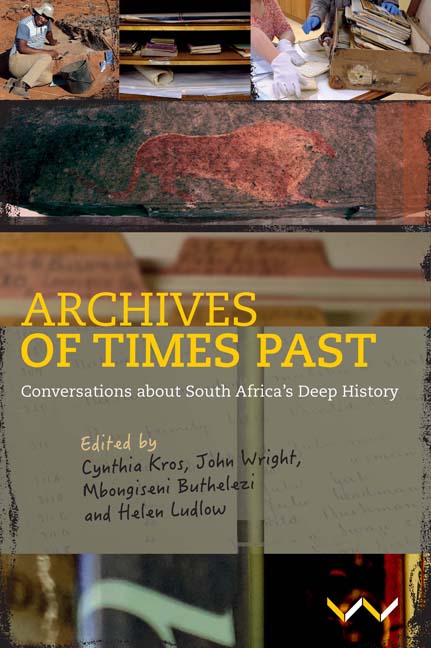Book contents
- Frontmatter
- Contents
- List Of Illustrations
- Acknowledgements
- Editorial Note
- Map
- PART I FIRST THOUGHTS ABOUT THE ARCHIVE
- PART II COMMENTARIES AND CONVERSATIONS
- PART III BECOMING EXPLORERS
- PART IV ENGAGING WITH ARCHAEOLOGY AND ROCK ART
- PART V CONFLICTING OPINIONS
- PART VI FURTHER THOUGHTS
- Glossary
- Contributors
- Index
Chapter 7 - Making ‘Tribal Histories’: The Work of Paul-Lenert Breutz
Published online by Cambridge University Press: 26 May 2022
- Frontmatter
- Contents
- List Of Illustrations
- Acknowledgements
- Editorial Note
- Map
- PART I FIRST THOUGHTS ABOUT THE ARCHIVE
- PART II COMMENTARIES AND CONVERSATIONS
- PART III BECOMING EXPLORERS
- PART IV ENGAGING WITH ARCHAEOLOGY AND ROCK ART
- PART V CONFLICTING OPINIONS
- PART VI FURTHER THOUGHTS
- Glossary
- Contributors
- Index
Summary
By the time we (the two authors of this chapter) met up with each other, we had both been working extensively with the publications of ethnographer Paul-Lenert Breutz. Fred Morton had found that Breutz's books published in the 1950s and 1960s had opened his eyes to many aspects of Tswana history. As an archaeologist, Jan Boeyens had relied on Breutz's records to give him a picture of where Setswana-speaking groups had settled in the past. Other scholars of Setswana-speaking people before colonial times also take much of Breutz's work seriously and have found it very useful for their own studies. But early in our own work, we were interested to discover that very little had been written about his life. Who was Paul-Lenert Breutz? We decided to try to find out more about him. In this chapter, we record what we were able to discover about his life, his studies, and the career he followed when he came from Germany to South Africa. We also discuss some of the limitations of his work, while explaining why we think it is important for scholars in this area.
One of the reasons why we do not have a full biography of Breutz may have something to do with his early life. He was born and brought up in Germany, and enrolled at the University of Hamburg in 1932. The following year, the Nazi Party took over the government. All non-Nazi parties were outlawed. Germany's democracy was destroyed, and Adolf Hitler set himself up as a dictator. Breutz's studies for a PhD in ethnography and African languages took place against this background.
World War II broke out in 1939, when Germany invaded Poland. The war ended with the defeat of Germany in 1945, and three years later Breutz emigrated to South Africa to take up a job in the Native Affairs Department in Pretoria. The National Party had just come to power and was planning to implement apartheid. One of the new government's main aims was to limit the number of African people coming into the towns and keep them in the rural areas. Apartheid planners argued that all African people belonged to particular tribes that had originally come from particular areas of the country.
- Type
- Chapter
- Information
- Archives of Times PastConversations about South Africa's Deep History, pp. 88 - 103Publisher: Wits University PressPrint publication year: 2022



